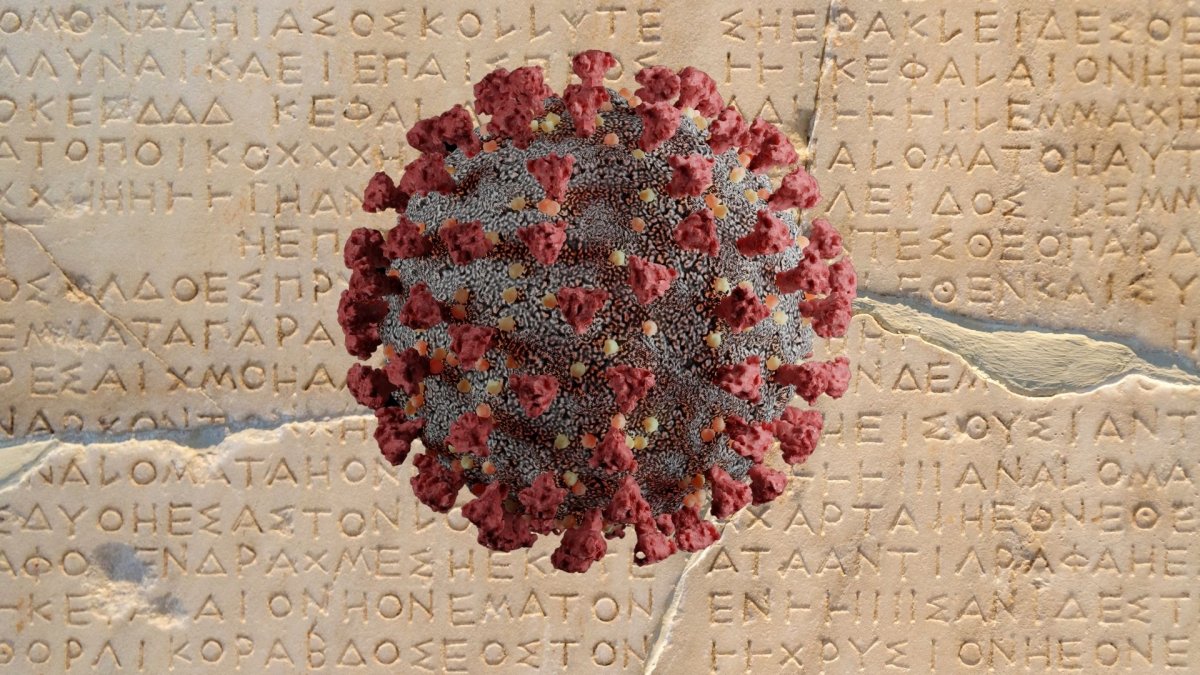A worrying new "heavily mutated" COVID variant has emerged in Botswana, South Africa and Hong Kong, prompting the World Health Organization to schedule an emergency meeting on Friday.
At the WHO meeting, delegates will discuss the variant, named B.1.1.529, and its implications for vaccines, testing, emerging symptoms and medicinal therapies.
If the organization determines that B.1.1.529 is a variant of interest or concern, it will be assigned a Greek letter name—just like Delta, Alpha and Beta before it.
The B.1.1.529 variant is already being called "Nu" in some quarters, but it remains to be seen if this will become its official name. Nature said Nu was the likely choice as it is the next available letter in the Greek alphabet.
The Greek naming system for COVID variants of interest and concern was introduced by the WHO on May 31, 2021. The idea was to ensure that variants had easy-to-say and remember labels.
The labels don't replace scientific names for variants. Beta—which emerged in South Africa during its second wave in 2020—is still called 501Y.V2, B.1.351, 20H/501Y.V2 or GH/501Y.V2, depending on which naming system researchers use.
These names, assigned by scientific organizations such as GISAID, Nextstrain and Pango, convey important information, so are still used in research. Scientists use the Greek names too, however, especially when communicating with the public.
The naming system is designed to avoid geographical stigma being assigned to a COVID variant. When Beta first emerged, many media outlets and even some scientists were referring to it as "the South African variant."
Naming a virus for a geographic region can also be confusing, according to Nature, especially in regions that are battling more than one variant. "South African variant" could now refer to Beta or the newly emerged B.1.1.529, for example.
The use of geographical names even discouraged some nations from running tests for emerging variants to avoid the risk of stigmatization, Nature reported.
Tulio de Oliveira, a bioinformatician and director of the KwaZulu-Natal Research Innovation and Sequencing Platform in Durban, South Africa, told the magazine in June:"The geographical names, we have to stop with that—really."
He added that he was aware of countries in Africa where health ministers had been reluctant to announce the discovery of new variants for fear that this would result in their country being made a pariah.
Before deciding to use the Greek alphabet, the WHO consulted experts who work on existing naming systems, as well as virus taxonomic experts, researchers and national authorities.
With only 24 letters in the Greek alphabet, however, there is the grim possibility that the WHO may run out of names for variants. It has already used 12 letters, with Mu named in September.
If B.1.1.529 is given a Greek letter at Friday's meeting, there will be just 11 left to choose from.
The WHO's technical chief for COVID-19, Maria Van Kerkhove told The Telegraph in August that the organization was already considering possible COVID naming schemes that could be used next.
One option, Van Kerkhove said, was naming variants after constellations. So, in the future, we could see reports about variants Taurus, Gemini or Orion alongside Delta, Alpha and Beta.

Uncommon Knowledge
Newsweek is committed to challenging conventional wisdom and finding connections in the search for common ground.
Newsweek is committed to challenging conventional wisdom and finding connections in the search for common ground.
About the writer
To read how Newsweek uses AI as a newsroom tool, Click here.








